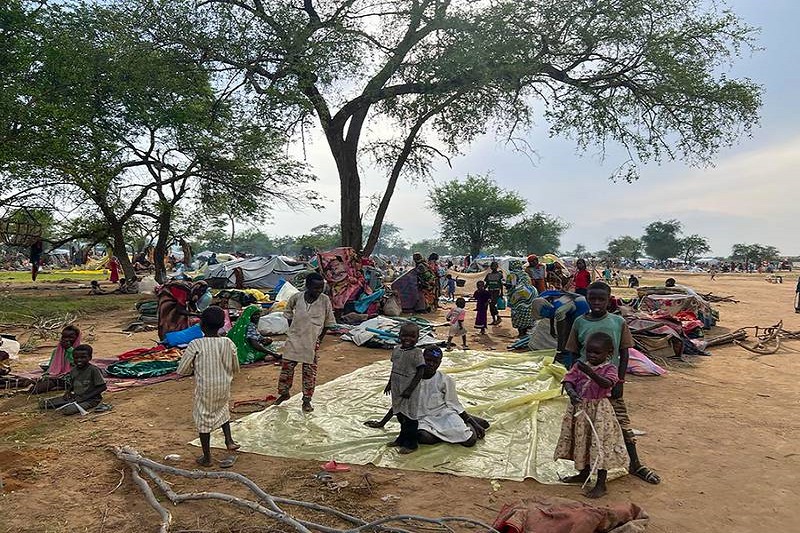Leaders from Sudan’s six neighbouring countries gathered in Cairo, Egypt, on Thursday for high-profile peace negotiations aimed at resolving the ongoing conflict in Sudan. The meetings sought to find a solution to the violence that has plagued the country since April, when tensions between the military and the paramilitary Rapid Support Forces (RSF) erupted into open conflict.
The leaders of Ethiopia, South Sudan, Chad, Eritrea, the Central African Republic, and Libya were present at the meeting, which Egypt’s President Abdel Fattah el-Sissi hosted. President el-Sissi condemned the recurrent attacks on people, healthcare facilities, and public service outlets in Sudan. He called upon international leaders to intensify their efforts in providing necessary humanitarian assistance to address the severe shortage of food and medical supplies, aiming to alleviate the crisis’s impact on innocent civilians.
The meeting followed the breakdown of discussions between the United States and Saudi Arabia in Jeddah a few weeks earlier. The talks were called off due to the failure of both parties to cease hostilities and uphold previous agreements.
Related Posts
During the Cairo meeting, an agreement was reached to establish a ministerial mechanism, consisting of foreign ministers from neighbouring countries, to address the crisis in Sudan. The mechanism aims to develop an executive work plan comprising practical and implementable solutions. It seeks to halt the fighting, achieve a comprehensive solution to the Sudanese crisis, and establish direct communication with the various Sudanese parties. The existing mechanisms of IGAD (Intergovernmental Authority on Development) and the African Union will provide coordination and support. The first meeting of this mechanism will be held in Chad to advance these steps.
President el-Sissi noted that the RSF and the Sudanese military had previously agreed upon at least ten cease-fires, with most mediated during the Jeddah discussions.
Since April, Sudan has experienced widespread violence, leading to a state of emergency. Millions of people have been displaced, and aid has been limited. According to the United Nations, over three million people have been forced to relocate due to the conflict between government forces and the RSF paramilitary group.
Internally displaced people (IDPs) in Sudan’s testimonies serve as an example of the dire situation. Adam Salem, an IDP, reported a severe lack of assistance, with aid deliveries being infrequent. In one case, a school for girls in central Sudan accommodates around one thousand refugees, including families, expectant women, and individuals with chronic diseases.
The violence in Sudan has resulted in the deaths of approximately three thousand people, with the United Nations warning of potential crimes against humanity in the Darfur region. However, international organisations’ involvement has been limited, and it remains unclear whether the obstacles stem from the organisations themselves or the government.
Addressing the situation, the United Kingdom announced its intention to impose sanctions on businesses believed to have connections with armed organisations on both sides of the Sudanese conflict.
The Cairo peace negotiations among Sudan’s neighbouring leaders aimed to find a resolution to the ongoing violence in Sudan. The urgent need for humanitarian assistance and the severity of the crisis for innocent civilians were emphasised. The establishment of a ministerial mechanism, coordination with existing regional organisations, and direct communication with Sudanese parties were proposed as steps toward a comprehensive solution. However, challenges remain, including limited aid access and potential crimes against humanity, underscoring the need for international efforts to address the situation effectively.

